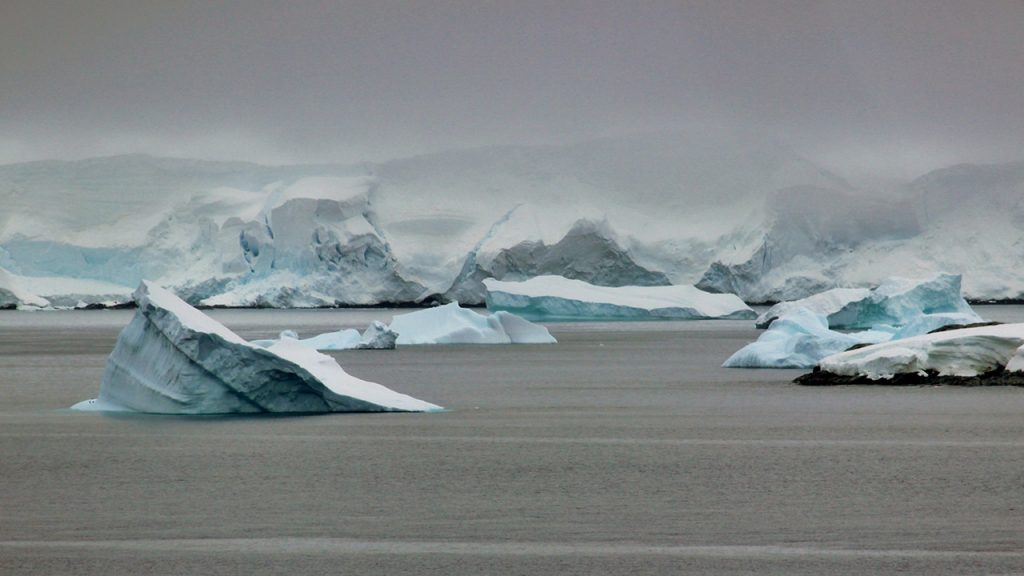
Celebrating International Day of Women and Girls in Science with Dr Ailsa Stroud
Over the past 15 years, the global community has stepped up efforts to inspire and engage women and girls in science. In 2019, the UK reached over one million women working in science, technology, engineering and mathematics in the UK.
Yet women and girls continue to face long-standing biases and gender stereotypes, steering them away from science related fields. Women only represent around 24% of the workforce.
This year, women face even greater challenges in light of the Covid-19 pandemic, which has disproportionately affected female scientists, especially those in early career stages.
Our role as innovators and problem-solvers depends on diverse perspectives who can drive atmospheric science forward. And, our responsibility to bring science and society together necessitates a commitment to a more inclusive environment.
On International Day of Women and Girls in Science, we are sharing the story of Dr Ailsa Stroud, Head of Earth Observations Policy at the Department for Environment, Food and Rural Affairs (Defra).
We spoke to Ailsa about her career story to encourage female PhD students and early-career scientists into fieldwork. Her interview was published in print a couple of years ago, and is now shared online for the first time.
I’m a climate scientist who has travelled to the ends of the earth in pursuit of atmospheric science. During my PhD at the University of Cambridge, I attended the NCAS Atmospheric Measurement Summer School to help prepare for fieldwork campaigns.
I have since worked for the British Antarctic Survey and now advise the UK government.
Ailsa’s interest in climate science stemmed from a fourth year project in her Chemistry undergraduate degree but she became more motivated to pursue this career following the death of her father – Ailsa says this gave her the impetus to do something meaningful with her life. Like many atmospheric scientists, Ailsa has a diverse skill-set which ranges from chemistry to geoengineering, and fieldwork and policy engagement has been an important part of her career.
I remember flying out of my field season in Antarctica on a beautiful sunny morning, having completed our mission of three new ice cores. As we flew to the main base, Rothera, through some jaw-droppingly beautiful scenery of icebergs, crevasses and seal colonies I remember noting it was a Monday morning and thinking I was the luckiest commuter in the world. I still think I was probably right.
In terms of influence on the state of the environment though, one of my career highlights has to be being part of the UK delegation for the IPCC (Intergovernmental Panel on Climate Change).
Ailsa spoke of her resilience and described the ways that she supported her mental health while working in remote locations like Antarctica and the Arctic.
A lot of the preparation comes from knowing you’re not alone, despite being so remote. Support services in logistics, medicine, shelter, technical and even culinary advice was all very well-considered.
In terms of being personally prepared, I got fit and was prepared to get stuck in with all tasks, be it shovelling snow or tying knots. If you’re not a pro at the beginning you soon will be.
Taking time to mentally look after yourself is just as important for maintaining sanity and work ethic. For me, this meant going for a walk alone every couple of days to do a video diary and somehow articulate the ups and downs.
Shortly after Ailsa started her PhD in atmospheric science, she signed up for our Atmospheric Measurement Summer School based on the Isle of Arran to help prepare for fieldwork. She talks about the mental hurdles she needed to overcome:
I was about to embark on my first bit of international fieldwork as the sole representative of my University and felt the pressure to not let my lab team down.
I also felt pretty out-of-depth in terms of meteorology and interpreting chemical data alongside the vast array of variables when doing in-situ experiments. I didn’t even have a Physics A-level, so going back to the classroom was great for tackling that hurdle.
Spending her early career as a field scientist, Ailsa developed a multidisciplinary skill-set. Throughout her career, Ailsa says she’s not been afraid to tackle new challenges by applying her wide-ranging scientific background.
Now, as a science policy advisor, I often tackle environmental problems that aren’t technically in my field. On a daily basis, I apply scientific skills to a multitude of issues and interpret experts’ views into tangible choices for policy-makers.
Her advice to upcoming scientists?
Be willing to work outside your comfort zone. But, be imaginative about how you show it.
I interviewed an applicant at the British Antarctic Survey who had no experience of working in cold temperatures – but she was a hobbyist caver!
Personalities and civil duties matter too, when you’re on fieldwork. It’s never okay to skip washing up duty.
Ailsa is testament to the female role models within science. The breadth of her career illustrates the applications that science can have to our environmental crisis – if we’re able to access talent across our society.
As we work towards a more inclusive workplace, the National Centre for Atmospheric Science is identifying and challenging barriers to a more diverse range of skills, attitudes and experiences from underrepresented communities.
You can join the conversation using #WomenInScience on Twitter, and explore ways to support women provided by STEM Learning.
If you work with us, or are part of the atmospheric science community, we would love to hear your women in science career stories. Share your experiences with us by emailing Ruth Purvis, Head of Equality, Diversity & Inclusion.
